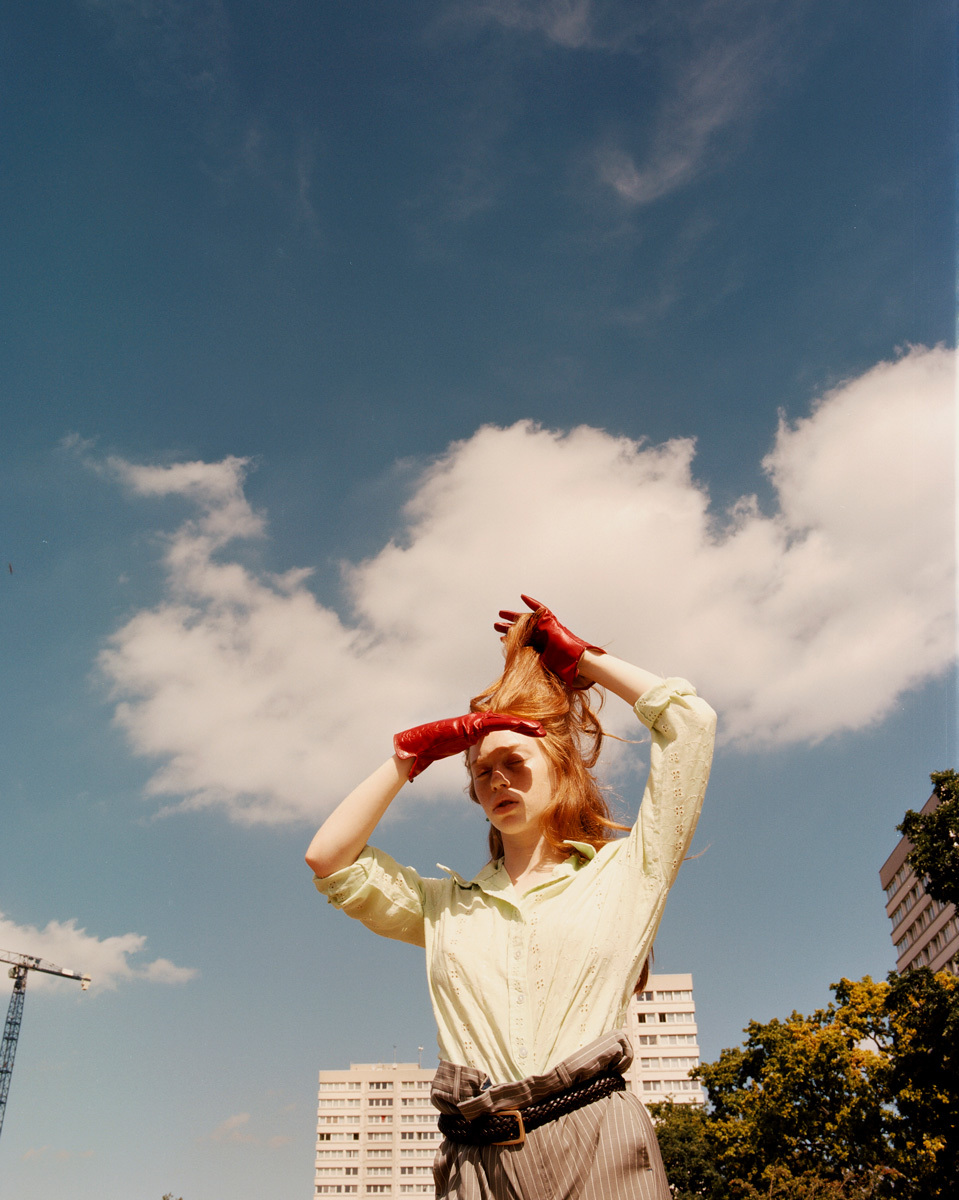Steph Wilson hates talking about herself. And yet when it comes to her work, she finds she’s always trying to include elements of herself within the frame. Look closely at her photographs and sure enough, there’s a glimpse of her feet or slither of her shadow. “I think a reminder of the photographer’s presence can be a curious thing,” she explains, “a glimpse of the original viewer.” Growing up in Farnham, Surrey (after having lived on a small boat), Steph left home on an art scholarship when she was 16 years old. Skipping university, she honed her creative skills as a practical artist, and channeled it into her photography. Confrontational and somewhat suggestive, her work typically centers on the female form, situated in an incongruous context like a field or forest, and framed by some kind of fetishized prop — a piece of fruit, a pair of gloves, an insect, an animal, or even a pair of scissors. Currently working towards a short, experimental film, the artist talks to i-D about the state of modern day culture, working alongside women, and what it takes to make it in the creative industries.
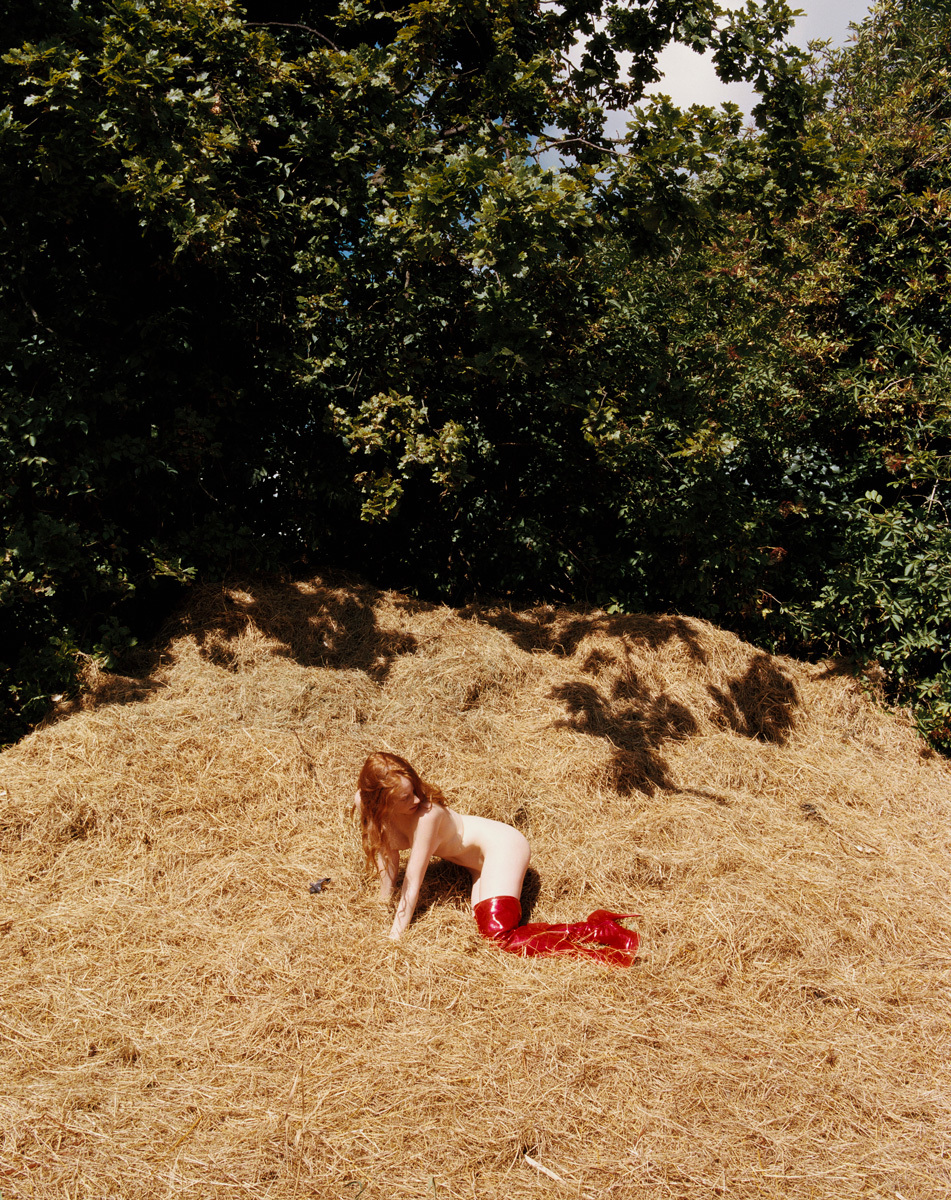
What is it about photography that appeals to you most?
What I love so much about photography is its stillness and ability to influence. I’m into old stuff; old clothes, old and ugly houseplants that people no longer want — to add to or nurture that object’s lifespan. Photography can capture all that life in a single frame as a kind of memorandum. An image can be so loaded with politics, humor, love (or hate) and sometimes even emit its own light — the stillness in photographs is such a paradox to the emotional movement they can posses.
What is it you’re trying to do with your art?
Entice people away from lazy thinking. Lazy thinking is everything wrong with everything. It’s nice to change people’s minds when possible.
What makes you stand out from other young female photographers?
I don’t think that’s necessarily something I aspire to do. I know so many young female photographers who I love as friends and respect as artists like Eleanor Hardwick, Alice Zoo, Maisie Cousins, Francesca Allen, Scarlett Carlos Clarke, and Chloe Le Drezen. I am honored to stand along side them. As women we depend on each other’s strength and support; it’s not about who outdoes who, but enjoying the fact we are succeeding as women together. There’s enough room for all of us!
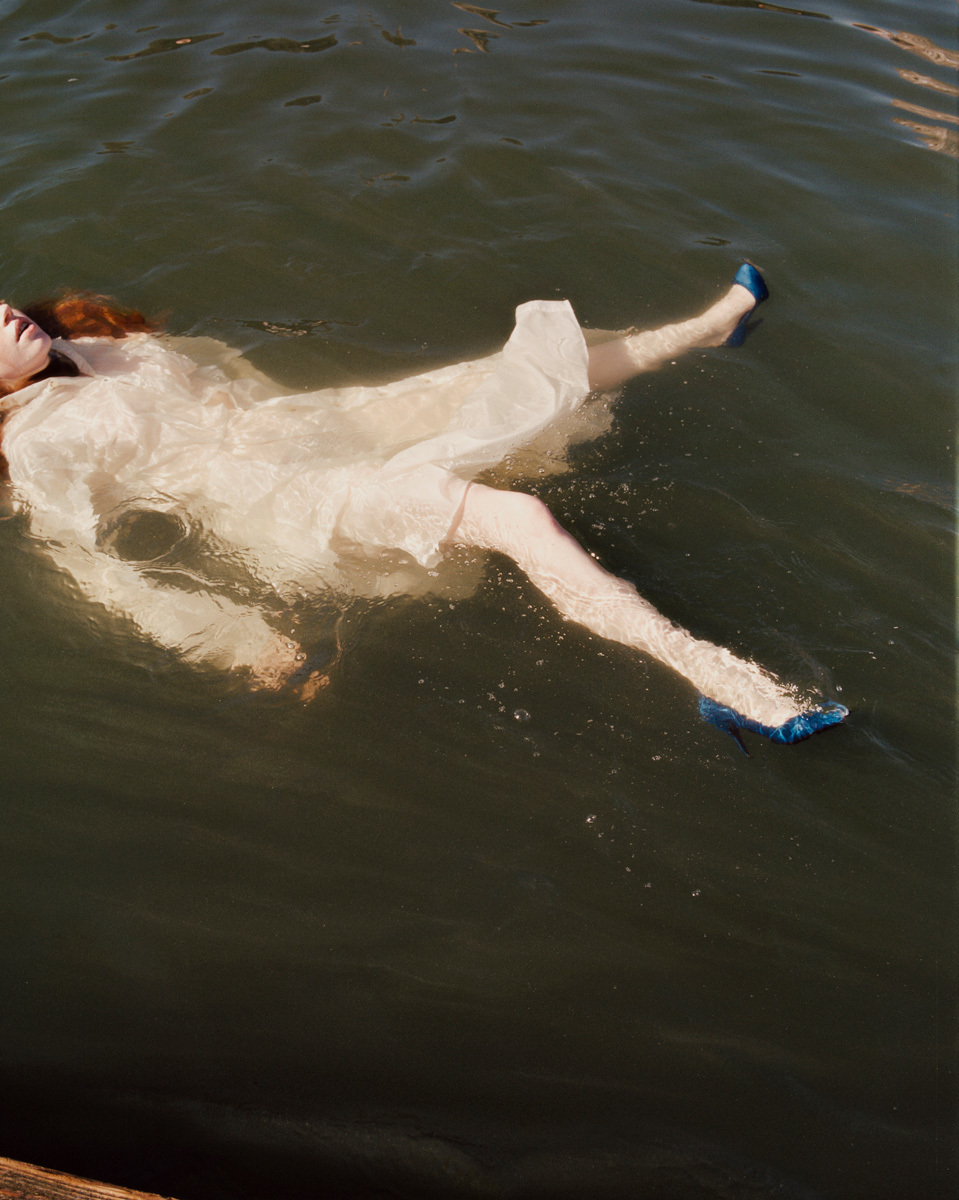
Why is it so important to see more women behind the camera?
I’ve tried really hard not to let myself get creeped out by straight male fashion photographers — it seems like such a cliché. Fashion week tends to warp your views on older men with cameras, however. Not just that but, as a woman, I really wouldn’t feel comfortable being, literally, physically directed by a man I’d just met. I’ve always found it odd how women’s clothes, in women’s magazines, edited by (mostly) women and shot on female models, are then captured through a male gaze. A female gaze brings empathy into the equation, and numerous models have told me the feeling of security and well being with a female photographer as opposed to a straight male. There are certainly male photographers I deeply admire, don’t get me wrong, but I’ve witnessed some pretty grim situations that make it hard for me not to be a bit cynical.
Who or what inspires you?
Things that make me laugh, things that make me angry… applying those to things to stuff I find beautiful. I can only be vague as it’s such a vague thing, inspiration!
What’s the bravest thing you can do as a young person?
In a world where vanity has evolved into a virtue, I think displaying humility and kindness while having the confidence to do what you believe is right is a brave thing. To be respectful while being blunt is a difficult balance, and as a woman it’s a constant battle to achieve that equilibrium while trying not to adhere to the multiple stereotypes set against women who are “making it.”
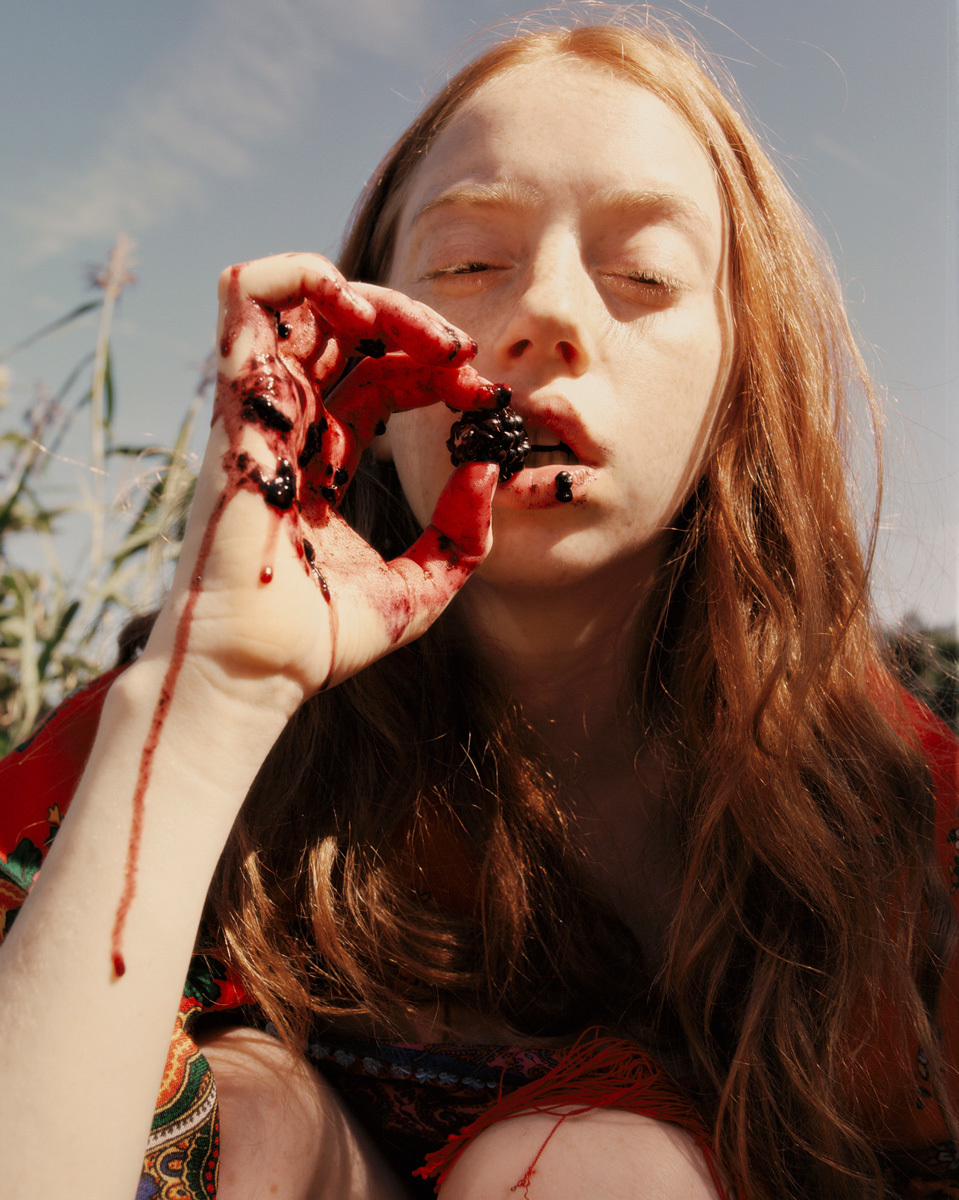
What’s the best advice for making it in the creative industries?
I’m still looking for someone to give me that advice! But from what I’ve picked up on so far, it’s about understanding what a client/magazine/consumer wants, and weighing that up against what you want. If you can find the right balance, leaning towards yourself, things are made a bit easier.
What’s the most exciting thing about modern day popular culture?
I’m actually a bit terrified of it, but intrigued with how to harness it. Things come and go so quickly, yet the same infrastructure that allows for this — social media, blogs, online news platforms — also creates a huge instrument for positive change. The internet is our life support now; it’s kind of surreal but so everyday.
What’s next?
I’ve got some shoots in the pipeline I’m really excited about. I’m also pondering an experimental short film as it’s been so long since I’ve played around with video.
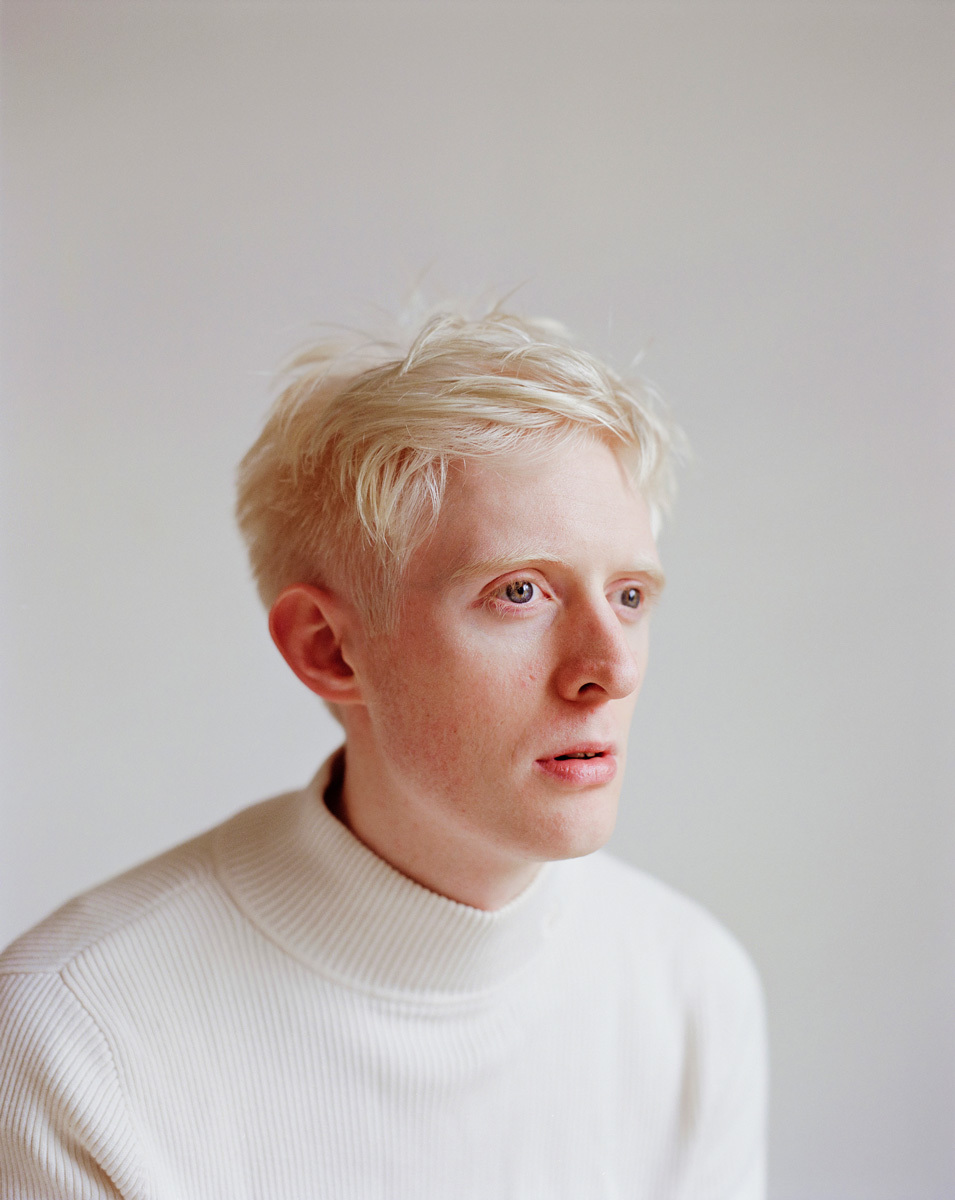
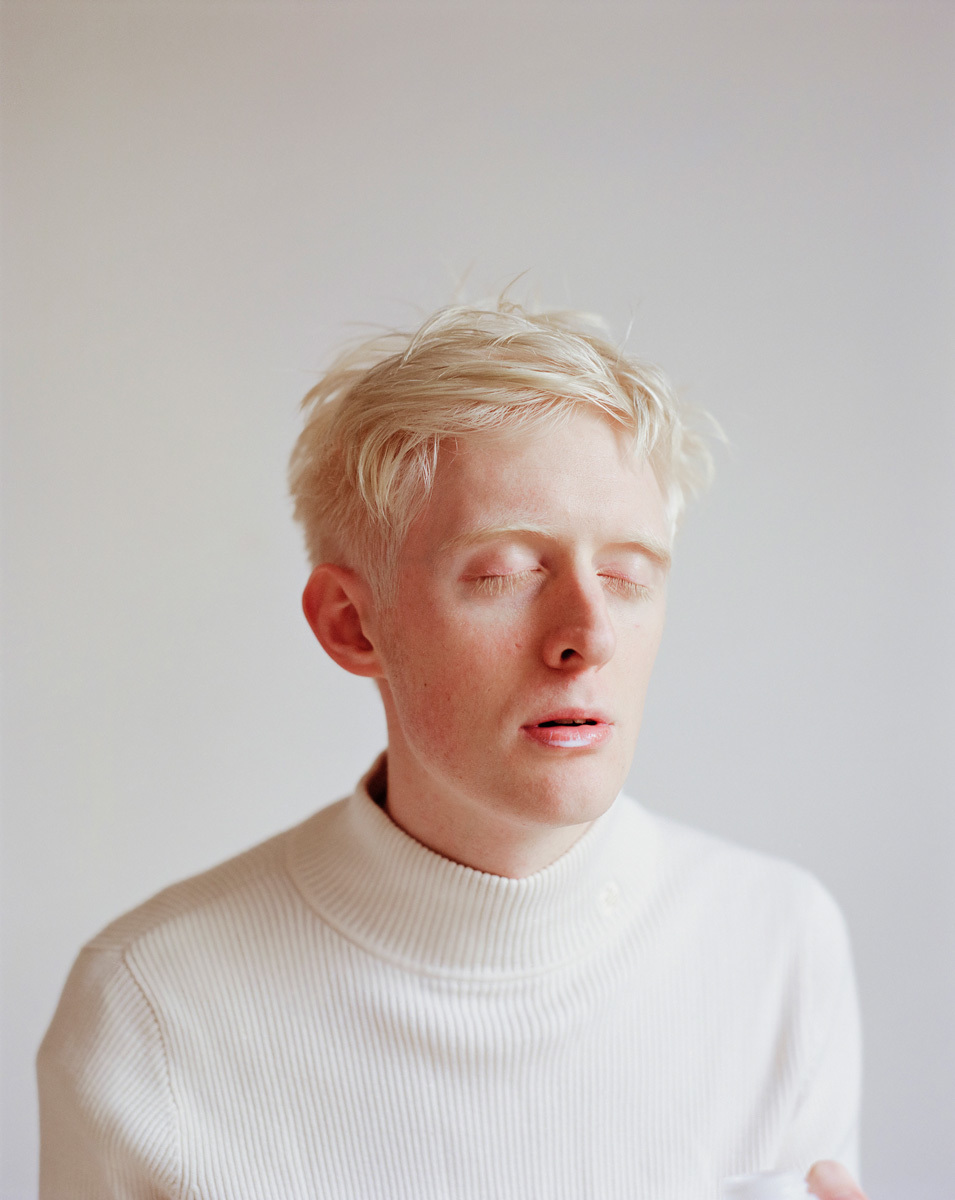
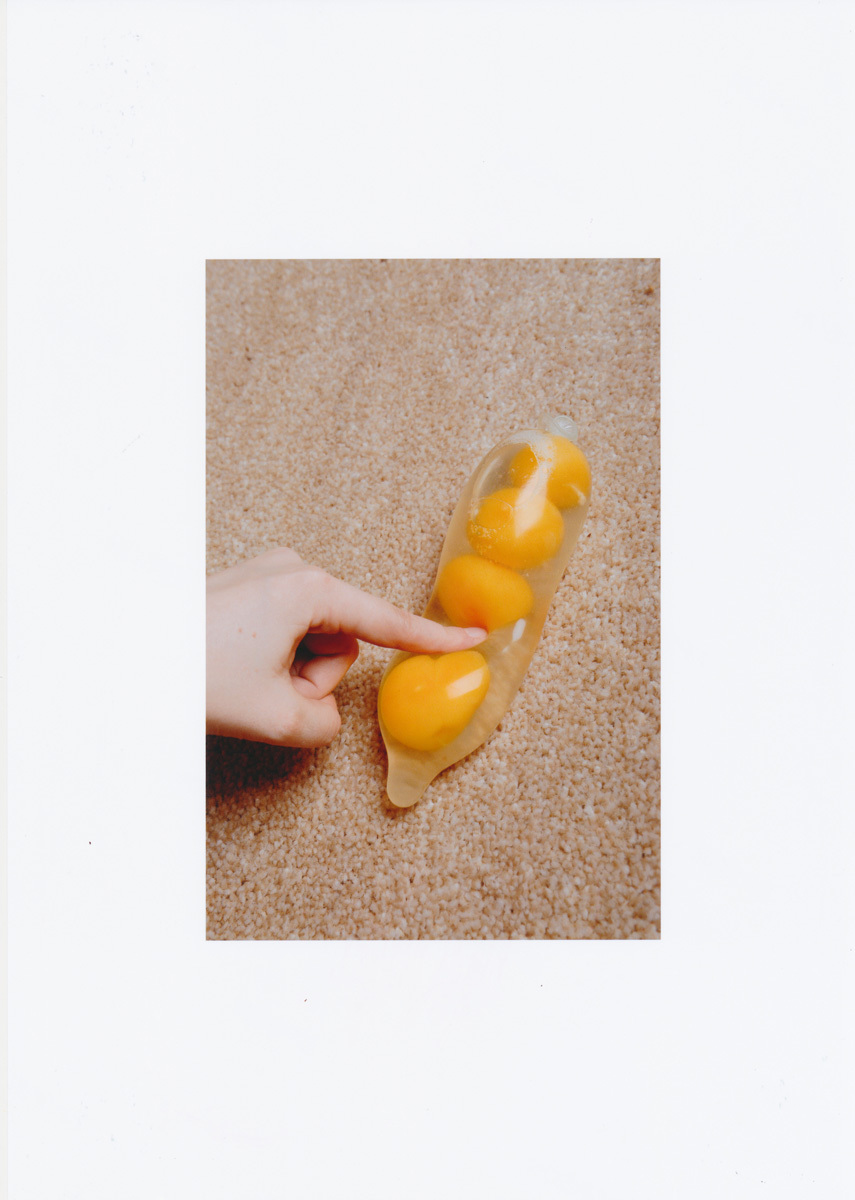
steph-wilson.com @stephwilsonshoots
Credits
Text Tish Weinstock
